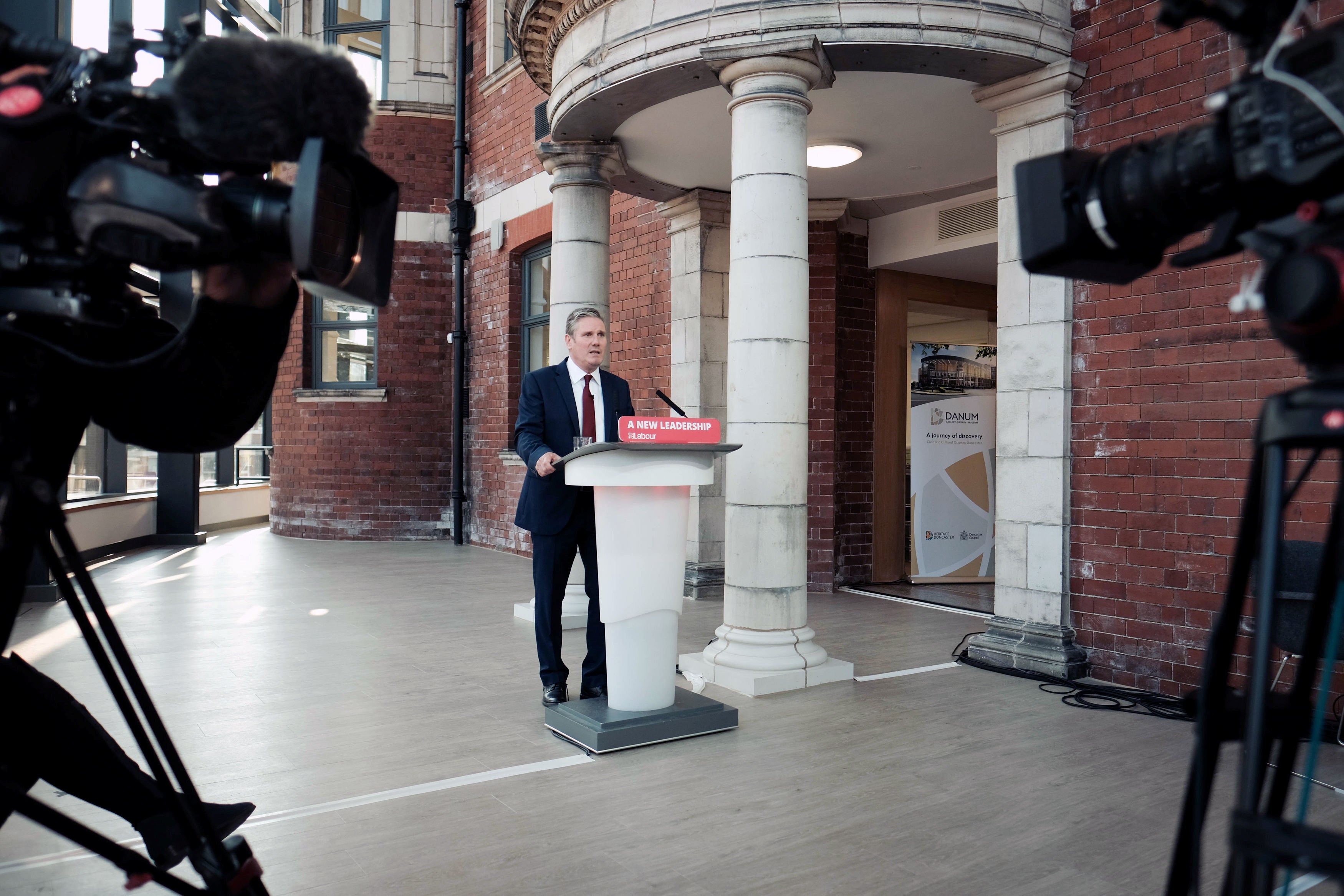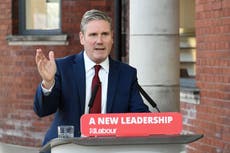The winners and losers of the virtual party conferences
While some political leaders will be breathing a sigh of relief, others will be far more unhappy that all this year’s party get-togethers are being hosted by Zoom, writes Sean O’Grady


If we didn’t have the annual political party conferences, would it be necessary to invent them? So far as the public is concerned, the answer has always been in the negative, but for the parties themselves, or at least the activists, they’re one of the highlights of the year. Meeting old friends, and enemies, gossiping in the bars, plotting in the break-out areas, rallying at packed fringe meetings in airless meeting rooms, the chance encounter with a junior minister in the lunch queue... such things make life worthwhile, a small reward for the hard, thankless task of campaigning, often in unwinnable constituencies.
Covid has put a stop to all that, and instead the conference season is “virtual”. For Labour supporters “meeting” this week it also means they’ve effectively lost the opportunity to vote on policy and make much of a contribution to debate. That, given the continuing affection for former leader Jeremy Corbyn, might be a bit of a bonus for Sir Keir Starmer.
Even if a more normal conference was possible this year, Sir Keir would find it hard to punch through a public health crisis. He has therefore that much less of a chance to introduce himself to the public, which for him must be a bit of a shame because the early signs are that the public like what they see, and he has usually performed well against the prime minister. The voters are more sceptical about the Labour Party, however. A week of arguments about the mistakes made in the 2019 election and the future of socialism is probably something Sir Keir can happily live without. This far away from a general election, Sir Keir has little in the way of solid policy to try and sell. His leader’s speech was all about Labour values and the future of Britain in the 2030s.
The major drawback of the combination of a sterile virtual conference and everything being overshadowed by the lockdown is that Labour’s emerging “stars” have had no chance to shine. This is especially true of the shadow chancellor, Anneliese Dodds, and the shadow home secretary, Nick Thomas-Symonds; Lisa Nandy, Angela Rayner and Ed Miliband are the only members of the shadow cabinet apart from Sir Keir with much of a profile.
The need for conference-driven coverage is even more pressing for the Liberal Democrats and their new leader Sir Ed Davey. On 6 per cent or so in the polls, they’re suffering too many jokes about the Rule of Six permitting their conference to proceed.
As for the governing party, the absence of a conventional conference (3-6 October) is a net positive. “Meet Birmingham” as a purely digital phenomenon is much less likely to become a focus for Brexit and Covid discontent and rumbling grumpiness about the prime minister’s performance. Boris Johnson enjoys his jokey platform performances and the adulation he’d no doubt receive for delivering them a thumping Commons majority. On balance, though, he has too many questions to answer, even among his own supporters, about competence, presentation and the resurgent Labour Party.
Party politics will be back to something more normal next year, vaccines allowing, and the conferences reverting to their older, more sociable ways; but also the political landscape that emerges through 2021 will also be very different – a post-Brexit, post-Covid agenda, probably dominated by a dire economic position and renewed attempts by the Scottish government to win independence through a referendum (still not overwhelmingly favoured by the people of Scotland). In some ways, political life for the main parties may be just as challenging as it is now.


Join our commenting forum
Join thought-provoking conversations, follow other Independent readers and see their replies
Comments